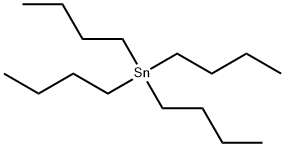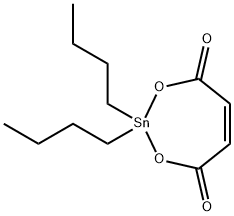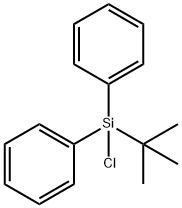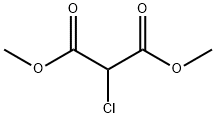Butylchlorodihydroxytin
Synonym(s):Butylchlorodihydroxystannane
- CAS NO.:13355-96-9
- Empirical Formula: C4H11ClO2Sn
- Molecular Weight: 245.29
- MDL number: MFCD00015822
- EINECS: 236-406-1
- SAFETY DATA SHEET (SDS)
- Update Date: 2024-12-18 14:15:30

What is Butylchlorodihydroxytin?
Description
Butylchlorodihydroxytin also known as Butyltin chloride dihydroxide, butyl(chloro)stannanediol, is one of several organotin compounds which are active as an esterification catalysts at a temperature range of 200-230 °C. It is a non-acidic white solid which has C4H11ClO2Sn as chemical formula. It dissolves by reaction on heating with alcohols or carboxylic acids. The resulting active is soluble in ester systems and remains in the ester product.
The Uses of Butylchlorodihydroxytin
Butylchlorodihydroxytin is an amorphous, hydrolytically stable butyl tin chloride dihydroxide. It can be used for esterification, polycondensation and transesterification reactions. The catalyst is used to synthesize saturated polyester resin for powder coatings. Other uses include:
production of unsaturated polyester resins for gel coat, sheet molding, and cast molding applications
in transesterification reactions run at temperatures between 140-180°C to produce esters and anti-oxidants
in the production of PBT engineering resins for the automotive and construction markets
Properties of Butylchlorodihydroxytin
| Melting point: | 150 °C (dec.)(lit.) |
| Boiling point: | 243.2±23.0 °C(Predicted) |
| Density | 1,26 g/cm3 |
| vapor pressure | 0.061Pa at 20℃ |
| storage temp. | Store below +30°C. |
| solubility | 1.03mg/L in organic solvents at 20 ℃ |
| pka | 2.98±0.70(Predicted) |
| Specific Gravity | 1.26 |
| Water Solubility | 1.03mg/L at 20℃ |
| Hydrolytic Sensitivity | 4: no reaction with water under neutral conditions |
| CAS DataBase Reference | 13355-96-9(CAS DataBase Reference) |
| EPA Substance Registry System | Stannane, butylchlorodihydroxy- (13355-96-9) |
Safety information for Butylchlorodihydroxytin
| Signal word | Warning |
| Pictogram(s) |
 Exclamation Mark Irritant GHS07 |
| GHS Hazard Statements |
H315:Skin corrosion/irritation H319:Serious eye damage/eye irritation H335:Specific target organ toxicity, single exposure;Respiratory tract irritation |
| Precautionary Statement Codes |
P261:Avoid breathing dust/fume/gas/mist/vapours/spray. P280:Wear protective gloves/protective clothing/eye protection/face protection. P301+P312:IF SWALLOWED: call a POISON CENTER or doctor/physician IF you feel unwell. P305+P351+P338:IF IN EYES: Rinse cautiously with water for several minutes. Remove contact lenses, if present and easy to do. Continuerinsing. |
Computed Descriptors for Butylchlorodihydroxytin
| InChIKey | FQYHHEJETOLDHR-UHFFFAOYSA-K |
New Products
Tert-butyl bis(2-chloroethyl)carbamate (S)-3-Aminobutanenitrile hydrochloride N-Boc-D-alaninol N-BOC-D/L-ALANINOL N-octanoyl benzotriazole 3,4-Dibenzyloxybenzaldehyde 4-Hydrazinobenzoic acid 1,1’-CARBONYLDIIMIDAZOLE R-2-BENZYLOXY PROPIONIC ACID 3-NITRO-2-METHYL ANILINE 4-IODO BENZOIC ACID 4-HYDROXY BENZYL ALCOHOL 4-(3-chloropropyl)morpholine phenylhydrazine hydrochloride (2-Hydroxyphenyl)acetonitrile 4-Bromopyrazole 5-BROMO-2CYANO PYRIDINE 5,6-Dimethoxyindanone 5-broMo-2-chloro-N-cyclopentylpyriMidin-4-aMine 4-methoxy-3,5-dinitropyridine 2-(Cyanocyclohexyl)acetic acid 2-aminopropyl benzoate hydrochloride 1-(4-(aminomethyl)benzyl)urea hydrochloride tert-butyl 4- (ureidomethyl)benzylcarbamateRelated products of tetrahydrofuran








You may like
-
 Butylchlorodihydroxytin 95% CAS 13355-96-9View Details
Butylchlorodihydroxytin 95% CAS 13355-96-9View Details
13355-96-9 -
 Butylchlorotin dihydroxide 96.00% CAS 13355-96-9View Details
Butylchlorotin dihydroxide 96.00% CAS 13355-96-9View Details
13355-96-9 -
 Butyltin chloride dihydroxide CAS 13355-96-9View Details
Butyltin chloride dihydroxide CAS 13355-96-9View Details
13355-96-9 -
 (9H-fluoren-9-yl)methyl (2,5-dioxopyrrolidin-1-yl) carbonate 82911-69-1 98.0%View Details
(9H-fluoren-9-yl)methyl (2,5-dioxopyrrolidin-1-yl) carbonate 82911-69-1 98.0%View Details
82911-69-1 -
 13057-17-5 95.0%View Details
13057-17-5 95.0%View Details
13057-17-5 -
 4-bromoaniline 106-40-1 99.0%View Details
4-bromoaniline 106-40-1 99.0%View Details
106-40-1 -
 5-bromo-2-chlorobenzoic acid 99.0%View Details
5-bromo-2-chlorobenzoic acid 99.0%View Details
21739-92-4 -
 15761-38-3 97.0%View Details
15761-38-3 97.0%View Details
15761-38-3